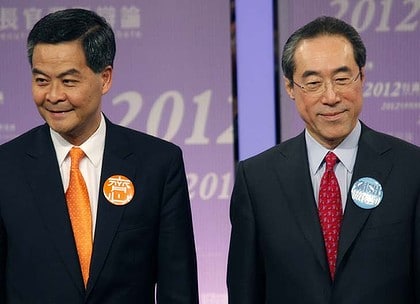As rumours abound that the government’s authority has been challenged, Beijing is striving to maintain its grip on Hong Kong.

A 1,193-person committee will vote on the semi-autonomous region’s next chief executive, while the rest of Hong Kong’s 7.1 million residents have no vote. The committee is made up of business leaders and other elites, most of whom are expected to vote according to Beijing’s wishes.
The man seen early on as Beijing’s preferred candidate, Henry Tang, is a former financial secretary who is deeply unpopular because of a series of gaffes.
There have been hints this week that China’s leaders are now switching their backing to his rival, Leung Chun-ying, a former Cabinet member.
A top Communist Party figure recently met with Tang supporters to persuade them to switch sides, and other pro-Beijing officials are reportedly working behind the scenes to do the same.
It’s a signal that Beijing thinks it’s important to be on the right side of public opinion even in a race it controls. The race has been marked by a series of scandals and mudslinging, with Tang hit by allegations of an extramarital affair, an out-of-wedlock child and a huge, illegally built addition to his home.
It’s a sharp contrast to previous races, which were the kind of dull, tightly scripted events with prearranged outcomes preferred by Beijing.
The blunders by Mr Tang, the son of a wealthy businessman, tap into wider public revulsion toward the city’s billionaires driven by a yawning rich-poor gap. Mr Leung, whose father was a police officer, has used talk of social reforms to broaden his public appeal.
by Robbo Green

